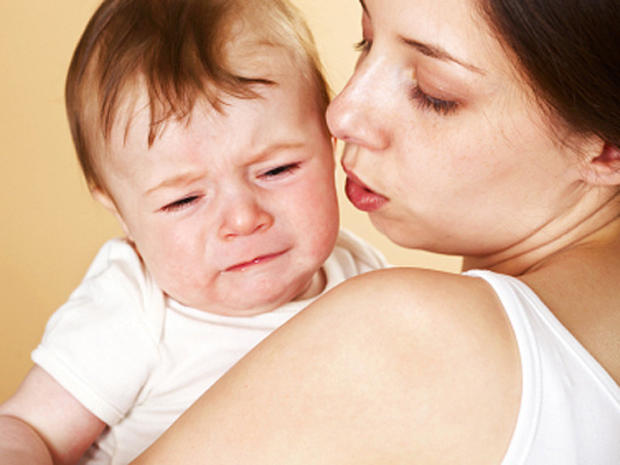Autism checklist: What every parent must know
(CBS/AP) - Kids with autism do best when they get early treatment, and new research shows that the sometimes devastating neurodevelopmental disorder can be detected with a simple five-minute checklist that parents fill out in a doctor's waiting room.
Pediatricians in San Diego tested the tool with more than 10,000 babies at their 1-year checkups, looking for such things as how the tots babble, gesture and interact with others.
The research, published Thursday in the Journal of Pediatrics, isn't ready for routine use - more work is needed to verify its accuracy. But doctors are optimistic about its value.
"There are subtle signs of autism at one year if you just look for them," said neuroscientist Karen Pierce of the University of California, San Diego, who led the study. "Let's just get these kids detected early and treated early."
One in 100 U.S. children has some form of autism, which causes problems with behavior, communication and socialization. The American Academy of Pediatrics urges autism screening at regular doctor visits at ages 18 months and 24 months. Yet a 2009 study found that children generally aren't diagnosed until age 5.
The 24-question checklist was developed a few years ago to detect broader signs of language or developmental delays. Pierce signed up 137 pediatricians to use the questionnaire during every 1-year checkup and refer babies who failed for further testing. Those youngsters were re-evaluated every six months to age 3, when a diagnosis could be certain.
Of 10,479 babies screened, 184 who were sent for further testing followed through - and 32 eventually were diagnosed with autism. That's consistent with expected rates of detection that young.
Numerous other children were diagnosed with language delay or another developmental problem, so that in the end, the screening accurately predicted some problem in 75 percent of those kids. But there were false alarms for 1 in 4, who had no problems.
One big puzzle: Only a fraction of the 1,318 babies who failed the initial screening were referred for follow-up. The study couldn't tell how much of that gap was recording error, or if doctors or parents weren't worried enough to follow up right away, or if families went elsewhere.
For now, what should worry parents? Pierce's top concerns:
-Lack of "shared attention." Around age 1, babies should try to "pull your attention into their world," pointing to a bird and watching to see if you look, for example, or bringing you a toy, she said.
-Lack of shared enjoyment, where a baby may smile at mom but not engage if other people try peek-a-boo.
-Repetitive behaviors like spinning a car wheel rather than playing with the toy.
Language delays are worrisome if they accompany other problem signs, she said: "If they wave and they point, that's a good sign the brain is readying itself to be ready to speak."
